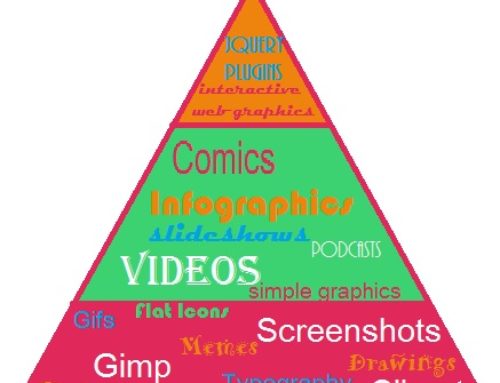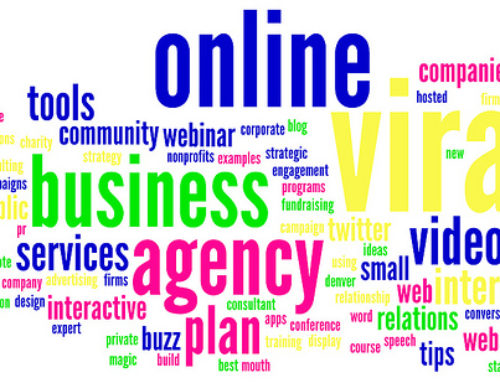Alison Kenney asked this question yesterday in a Facebook group I belong to:
asked this question yesterday in a Facebook group I belong to:
“When it comes to your own website, do you think a blog is a must?”
You’re reading this blog on a business website, so you already know what my answer is. However, let’s examine this a little more closely.
Why do people ask whether or not you should host your own blog?
Usually, two reasons:
1. There are several platforms that want you to produce long-form content on their sites. Facebook, LinkedIn, Quora, Medium … the list goes on. Some of these come with built-in networks; that’s one of the reason LinkedIn Publishing has taken off the way it has. Some of them have artfully used your networks to build their own (Quora, most recently, Ello).
So when you have a bunch of “hosts” out there, all ushering you into the window seat, why bother with the hassle of creating your own?
2. Blogging – the physical activity of creating content – takes time. Managing your own blog takes time. Finding out which distribution and engagement mechanisms take time. And it’s time that business owners find hard to justify, when there is not an immediate return on their investment.
Must and must not
First, despite all protestations to the contrary, there is no “must” about anything when it comes to marketing. No matter how many posts you read on what you should and shouldn’t do (and that includes here on WUL). The only “must” is what works for you. But if part of your “must” and marketing strategy is long-form content and thought leadership, then blogging is most likely going to fit in there somehow.
That doesn’t mean it has to be on your blog; you could successfully devise and implement a strategy where you build up visibility and thought leadership through a smart guest blogging program. Several years ago, when I was editor of the Women Grow Business blog community, Robin Ferrier wrote a piece I still remember to this day, about how smart blogging doesn’t always mean starting a blog.
But at some point, you will want backlinks to your own content, and if you don’t have a place to send them … well, you see where I’m going with this.
Second, if you want to maintain ownership of your content, then the safest thing to do is to publish that content on a platform you own. LinkedIn, Facebook, etc., are not. This is one of the primary reasons why we strongly suggested to a new client that they build their (new) self-hosted blog on WordPress, as opposed to Medium. I’m happy to report they agreed!
Third, using good content in conjunction with smart SEO can help you rank higher in search engines, which can often lead to a prospect inquiry, or serve to reinforce your thought leadership and lead to other things (see my experience below).
One of our colleagues in the group pointed out that no one is Googling “PR blog” for answers and finding us as potential agencies/consultants (I paraphrased her exact words). This is true. But they are searching online for answers. If we’re answering those questions well, that can lead to our blogs surfacing in search results, often along with, or perhaps even preceding, content from more traditional media outlets.
Ultimately, you have to know what your business objectives are, how your overall communication strategy supports those objectives, and plan your tactics accordingly.
What are the business results of blogging?
Everyone has different experiences as to what their blogging has led to. Ann Marie van den Hurk says her blogging led to her being offered a weekly column, which that led to a book. Lisa Gerber has found blogging has helped nurture prospects along the pipeline to the close of a deal.
And Lisa made an important point for those of us in the business of content: “If we don’t have [a blog], [our prospects] certainly aren’t going to pick us if content development and digital PR is part of the scope [of work]. It’s an opportunity to share personal perspective – and if I’m preaching it to the CEOs I work with, I better be doing it myself.”
My own experience has been that blogging has: led directly and indirectly to clients; it definitely checks the “thought leadership” box (Ragan is using my name, among others, to publicize its new measurement guide, and I’m very grateful, make no mistake) ; it results in media opportunities and speaking engagements; there are more shares of, and engagement with, my content around the social web; and it helps to place me (and therefore SBC) on shortlists of consultants in various ways… which brings in more business (when I win, it sucks when I don’t), and keeps the proverbial lights on.
This is why we spent the last several months redesigning WUL and bringing it under the SBC umbrella. In retrospect, I would have done this much earlier; it’s been a PITA trying to set, or re-set, stuff like Google Analytics.
However you decide to approach your PR efforts, please do what’s right for you, and not what others tell you because “you should.” But do make sure you are thinking about how they ultimately support your business objectives. Else it’s a colossal waste of time, energy and resources. And no one needs that, least of all you.
I’ve had my say, what about you? Has blogging worked for you, or did you throw your hands up in exasperation? Or, are you firmly in the “I don’t want to go there” camp? Whatever it is, do share, I’d love to know!






![Social Media: The Key to Transforming Doctor-Patient Communication [Redux]](https://shonaliburke.com/wp-content/uploads/2013/07/2478514667_c11f906e33_b-300x225-500x383.jpg)


[…] 6. Is it Shortsighted Not to Host Your Own Blog? […]
RealSocialShark TYVM for sharing!
JackVincent Exactly! And even if our own blogs are not super-prolific, at least they show that we are experimenting with the tools and platforms of our times, and can advise clients with some degree of experience.
Thanks so much for your kind comment. I apologize for taking a couple of days to reply, I’ve been swamped with client (and other) work… so not a bad thing at all, but you know how it goes!
shonali You’re welcome Shonali!
kathikruse mmangen ShellyKramer KensViews BrennerMichael Sandee_Jackson Belated thanks for sharing my #WUL post on hosting a blog
timbo1973 bowden2bowden MeghanMBiro PamDidner leaderswest Belated thanks for sharing my #WUL post on hosting your own blog (or not)!
markwschaefer TYVM for sharing, Mark!
Great post, Shonali with great points. I like Lisa’s point that if we don’t have our own blog, we might be looked over when prospects look for supplier-partners.
I know a lot of people sharing other people’s material on LI, etc., but when they combine that with their own creation of material, it seems to have much more impact, at least IMHO. It brings some level of thought leadership with frequency.
Good food for thought, here. Thanks!
RobBiesenbach and Lisa Gerber. I see a lot of content published on LinkedIn that has already been published on he author’s own real estate. I don’t think it’s an issue, because people may find your on LinkedIn before they discover your website or blog. It’s nice when an author adds a footnote noting the original publication location. So I have shared quite a number of posts on LnkedIn that I otherwise would not have discovered, and added new sites to my Feedly hoard.
AlisonKenney Thanks, Alison! Yes, you did indeed, and I embedded a link to that in the first para of the “must and must not” section. :)
RobBiesenbach Lisa Gerber Hi! Sorry to reply late, I was at the WWPR #WOY2014 event today (it was my singular honor to introduce sambagal as the keynote speaker, how cool was that?!), and am just checking email etc.
From what I see on LI, most people publish to their blogs, and then they repost to LI with a mention. The one exception I’ve seen so far (and this is based only on the few folks through whose LI content I’ve scrolled, and then compared to their blog content), is Shelly DeMotte Kramer. She not only posts original content on LI, she waits to post it to her blog & then notes where it was originally published, PLUS there is a ton of original content on her blog.
This is precisely the reason I haven’t yet published anything on LI. My feeling is if I’m going to publish there, I would like it to be at least somewhat original. If I’m just cross-posting in 20 different places, what’s the point? I was thinking of trying riffing off of a post, but doing something original, for LI. Ditto if I publish to Medium, etc.
I have heard of folks getting a lot more traffic/interest because of posting even pre-published content to LI. So there’s that.
Lisa Gerber Glad I’m not the only one! I need to make choices, and while I heard a lot of chatter early on about whether people were going to post original content to LI or repost their blogs, I haven’t seen any analysis since about which is better in practice.
RobBiesenbach I grapple with the SAME issue. Publishing on Medium or Linkedin is such a great way to extend our networks, but it means we need to create more. So I haven’t done so yet.
Doing what’s right for you is the key here. I have clients I recommend we should NOT blog possibly because I see they won’t invest the time in it, and because they don’t really want to. You have to want to, and it has to be embraced culturally within the organization (which is a post I’m working on at the moment.) for it to work.
But I wanted to add a piece about the googling “PR Blog.” The other thing is, all our traffic doesn’t come from search engines. It comes from concentric circles in our various networks, and for some, that’s where the really valuable traffic comes because it’s a trusted referral, not a cold organic lead. That’s an important distinction.
Thanks for including me in your post. I love that your blog is incorporated into your site now!! YAY!!!
Shonali, you summed up many of the points of our Facebook group discussion and the impact a blog can have on one’s website and business. Part of my original post included a link to this article: http://moz.com/blog/should-you-blog?utm_content=buffer22b5e&utm_medium=social&utm_source=twitter.com&utm_campaign=buffer which I think offers some good perspective on alternatives to blogging.
Good morning, Shonali! Great thoughts here. I haven’t jumped on the Blogging on LinkedIn bandwagon, but I do see people getting decent engagement with it. Question: how important is it to post original content there versus reposting stuff from your blog? That is, instead of just posting a link to your latest blog post, reposting the whole thing at LinkedIn, or even digging into your “back catalog” and posting older blog posts there?
To me, the idea of working to create brand new content in one more place is more than I’d want to take on.